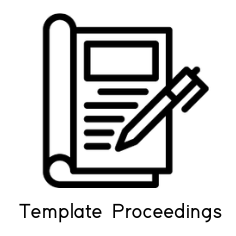Obtaining Elderly Patients’ Lifestyle Information from Unstructured Text Sources
DOI:
https://doi.org/10.29103/micoms.v3i.181Keywords:
information extraction, unstructured text, patient lifestyle, SVMAbstract
In this work, we made many simulations to take information from free-text notes belonging to the patient that indicates his or her habits. Detailed information about a patient's habits will allow the nurse to create a personalized daily schedule. Due to the fact that each patient has a different routine. The information is separated into five categories: dietary habits, drinking/smoking habits, excretion habits/toilet style, fashionable/colour preference/footwear, and favourite music/radio/TV shows. To realize this, we use six machine learning models, there are Random Forest (RF), Support Vector Machine (SVM), K-Nearest Neighbours (KNN), Multinomial Logistic Regression (MLR), and Gradient Boosting (GB). As a result, all models have more than 90% accuracy on both train sets and test sets.In this study, we focus on SVM with Train Set Accuracy score 93.9% and Test Set Accuracy score 94.1%, which is more resistant to overfitting issues.
References
World Health Organization, World report on ageing and health.,World Health Organization, 2015.
Nitschke, I., and I. Kaschke, Special care dentistry for dependent elderly and people with disabilities, Bundesgesundheitsblatt, Gesundheitsforschung, Gesundheitsschutz 54.9, 2011, pp. 1073-1082.
Margari F, Sicolo M, Spinelli L, Mastroianni F, Pastore A, Craig F, Petruzzelli MG. Aggressive behavior, cognitive impairment, and depressive symptoms in elderly subjects, Neuropsychiatric disease and treatment, (8) 2012, pp. 347.
Li C, Cheung WK, Liu J, Ng JK., Automatic extraction of behavioral patterns for elderly mobility and daily routine analysis. ACM Transactions on Intelligent Systems and Technology (TIST). 9(5), 2018, pp.1-26.
Zhou X, Wang Y, Sohn S, Therneau TM, Liu H, Knopman DS., Automatic extraction and assessment of lifestyle exposures for Alzheimer’s disease using natural language processing, International journal of medical informatics, (130) 2019, pp. 103943.
Topaz M, Adams V, Wilson P, Woo K, Ryvicker M., Free-text documentation of dementia symptoms in home healthcare: a natural language processing study, Gerontology and Geriatric Medicine, 2020.
Healthcare P. n2c2 nlp research data sets, 2020. URL: https://portal. dbmi. hms. harvard. edu/projects/n2c2-nlp.
Hamdhana, Defry, Mobile application for caregiver in collecting statistical data of BPSD attack focused on macro activities: PhD forum abstract, Proceedings of the 18th Conference on Embedded Networked Sensor Systems, 2020.
Downloads
Published
Issue
Section
License
Copyright (c) 2022 Defry Hamdana, Asmaul Husna

This work is licensed under a Creative Commons Attribution-ShareAlike 4.0 International License.
COPYRIGHT NOTICE
Authors retain copyright and grant the journal right of first publication and this work is licensed under a Creative Commons Attribution-ShareAlike 4.0 that allows others to share the work with an acknowledgment of the work's authorship and initial publication in this journal.
All articles in this journal may be disseminated by listing valid sources and the title of the article should not be omitted. The content of the article is liable to the author.
Authors are able to enter into separate, additional contractual arrangements for the non-exclusive distribution of the journal's published version of the work (e.g., post it to an institutional repository or publish it in a book), with an acknowledgment of its initial publication in this journal.
Authors are permitted and encouraged to post their work online (e.g., in institutional repositories or on their website) prior to and during the submission process, as it can lead to productive exchanges, as well as earlier and greater citation of published work.
In the dissemination of articles, the author must declare https://proceedings.unimal.ac.id/micoms/index as the first party to publish the article.






